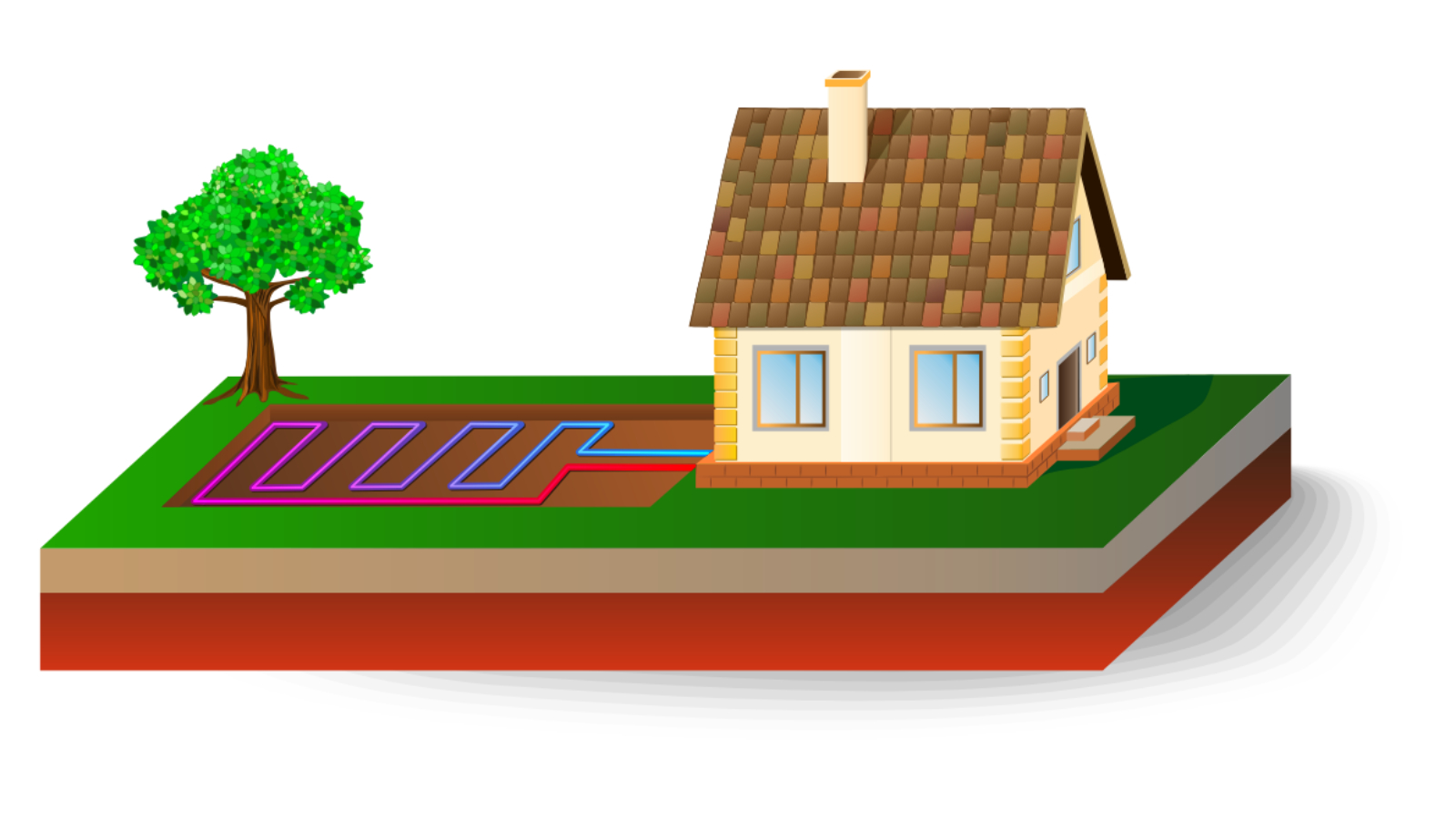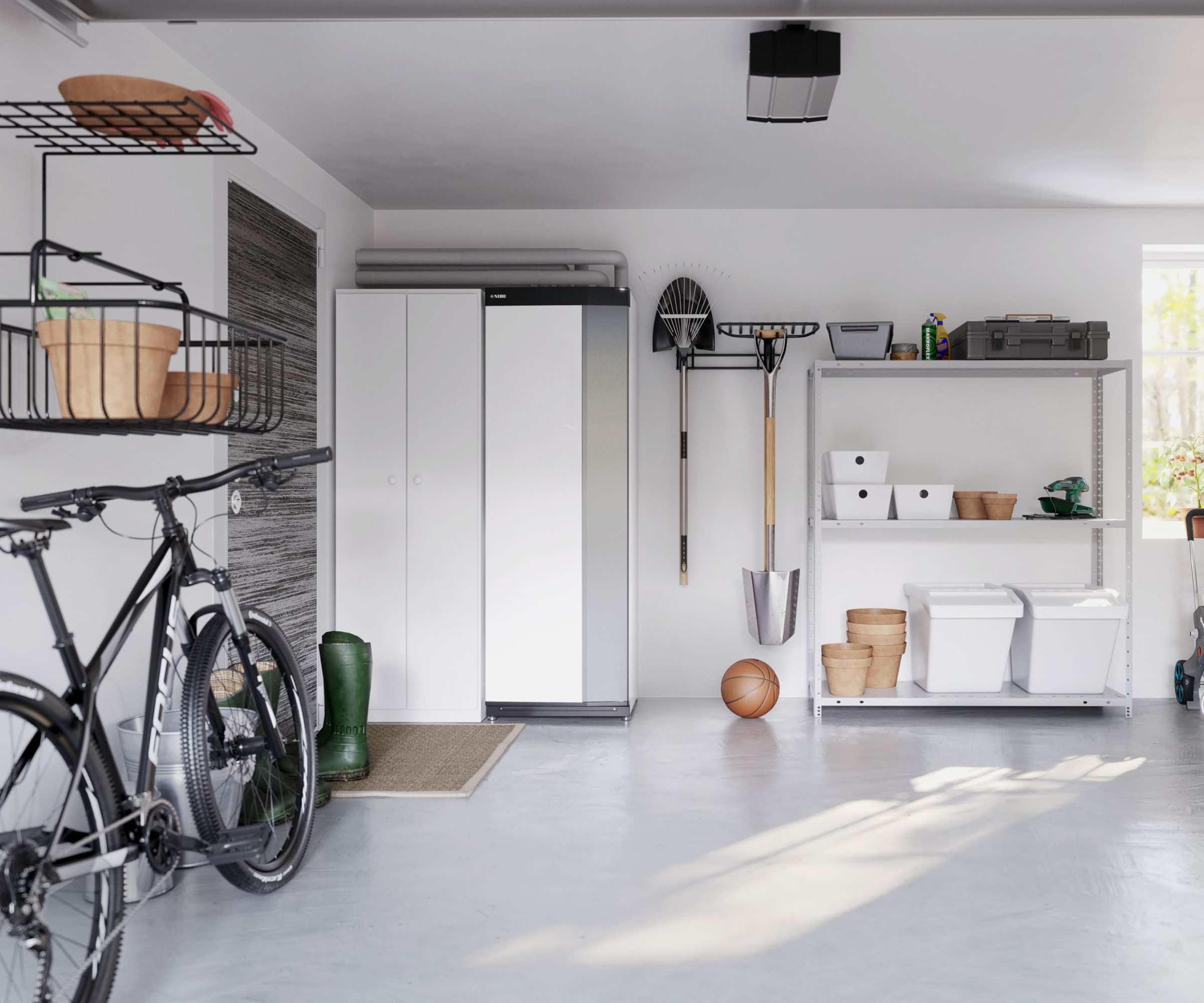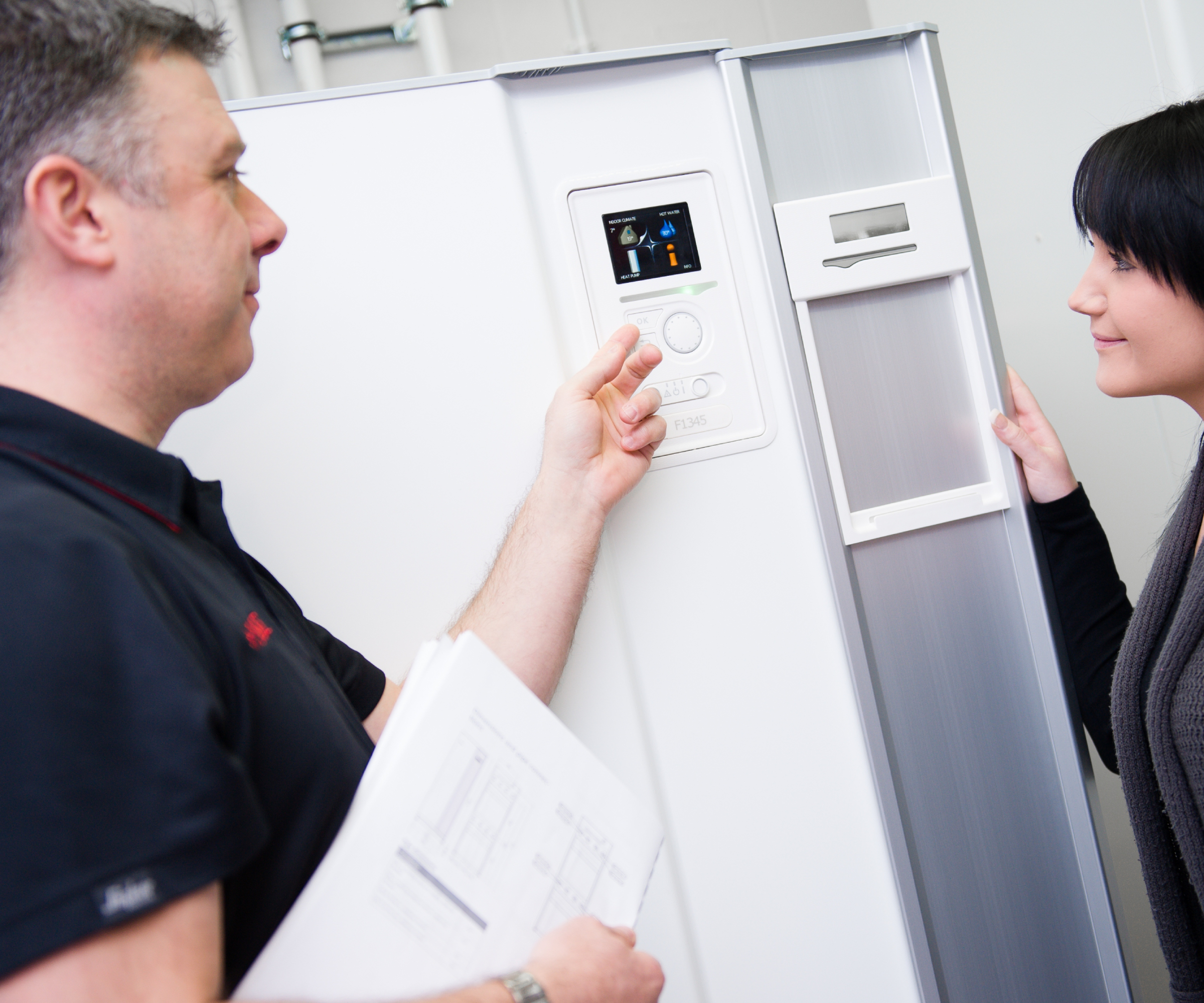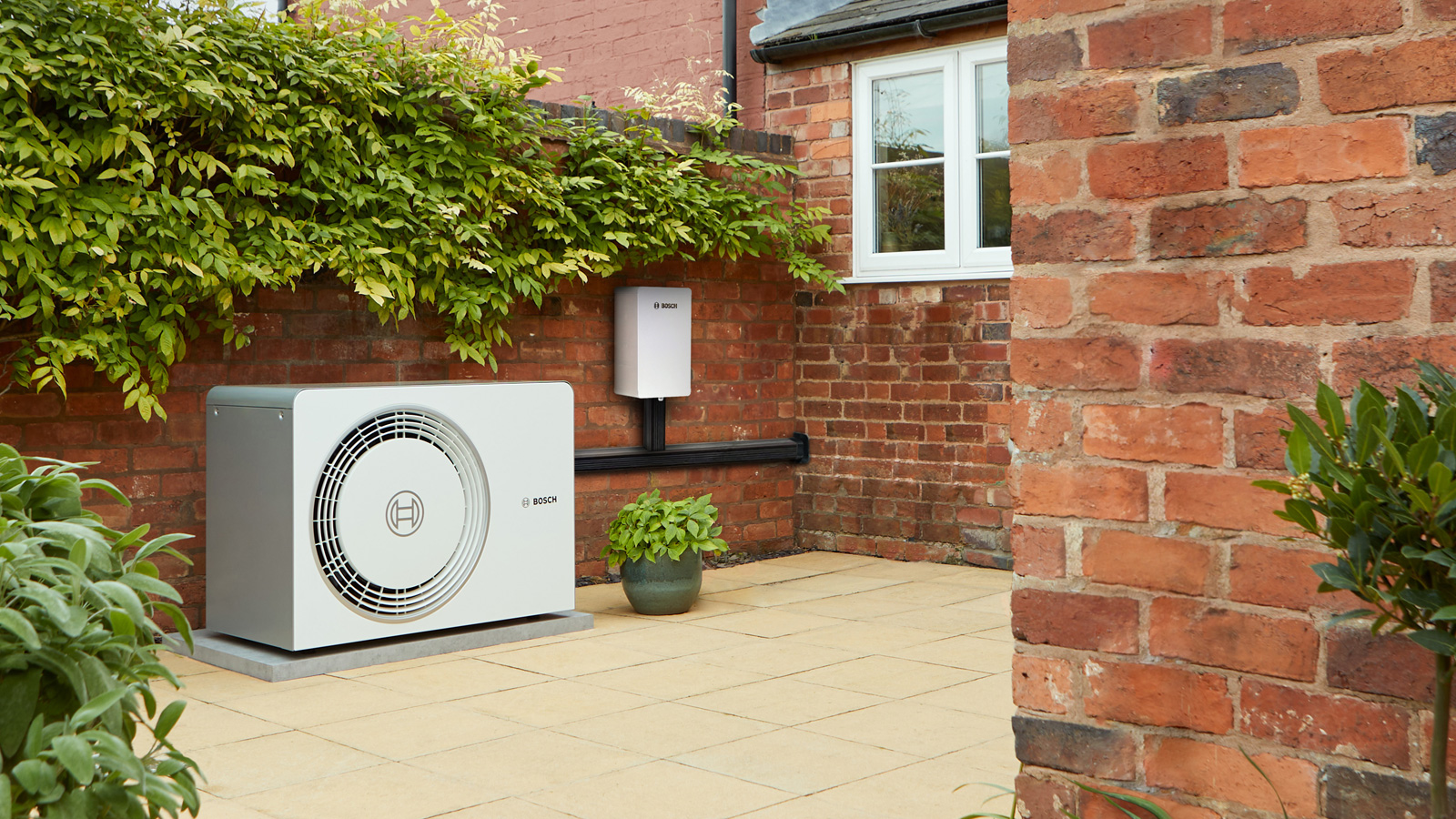Worried about ground source heat pump problems? We list the most common ones and how to find out what's causing them
Getting to the bottom of any ground source heat problems isn't always as difficult as it appears. We explore the most common issues and the likely causes

If you're considering using a ground source heat pump to heat your home, you could be wondering what type of ground source heat pump problems you may encounter. Or, perhaps you have one and have a few niggles you can't ignore.
It's not unsurprising that with the installation process involving pipework being buried deep underground, finding the root of any problems may seem like a daunting prospect and one you're keen to avoid.
With this in mind, we asked the experts what are the most common ground source heat pump problems, how you can try and avoid them, and what you can do to resolve them if they do happen.
The best way to avoid ground source heat pump problems
The good news? Avoiding ground source heat pump problems can generally be avoided as long as you get the installation right and make sure you keep on top of your heat pump maintenance.
"Many of the issues customers face with ground source heat pumps aren't problems with the technology itself, but rather with the planning and installation process," confirms James Horscroft, technical support engineer at Nu-Heat.
"A system that is incorrectly designed for the property's needs, or a ground loop that isn't sized properly, can lead to inadequate heating and inefficiency. For example, a common 'problem' is not having enough land for a horizontal ground loop, or a property's heat losses being too high for the system to keep up. The fix here is to get it right from the start by working with a competent, experienced specifier and designer," advise James.


James Horscroft has been with Nu-Heat for 6 years, working as a technical support engineer, advising and supporting customers with both underfloor heating and renewable energy systems.
Problem one: Unusual or excessive noise
Ground source heat pumps are one of the quieter forms of heat pumps, and while homeowners often ask are air source heat pumps noisy, it's not often asked of ground source.
Bring your dream home to life with expert advice, how to guides and design inspiration. Sign up for our newsletter and get two free tickets to a Homebuilding & Renovating Show near you.
If you are noticing a new or unexpected noise, it's therefore likely indicative of a problem of some kind. Of course, the fact you can hear the noise means it's hopefully coming from inside or close to home – rather than in the pipework outside that's underground.
The exception to the rule could be air bubbles trapped in the pipes, which can also cause other problems, but can easily be rectified.
"Issues can be caused by residual air or particles trapped in the primary water system or ground loops," says James Horscroft. "This may also cause poor operation or even a system shut down.
"However, by checking and cleaning all filters and bleeding trapped air both prior to and shortly after the system is commissioned, problems can be rectified in advance,” he advises.
If the noise is more of a rattling sound, be sure to also check over all the components on the heat pump unit inside your home and check that nothing is loose, or needs tightening.
Problem two: Insufficient heating or cooling
As a ground source heat pump can cool your home, as well as heat it, it might not always be during the winter months when you notice a drop off in performance. So, if you have noticed the temperatures aren't quite right, this could be down to a number of different reasons.
And, while it can be easy to assume it's down to outdoor temperatures fluctuating, this isn't the case says David Billingsley, sales director at Kensa.
"Temperatures below ground remain relatively constant all year round, so a sudden drop in air temperature during winter will not affect the performance of a ground source heat pump. There is no need for de-icing functions, nor for backup heaters for when the air is cold."
Worst case scenario? Your ground source heat pump hasn't been sized correctly to meet the needs of your home.
"The most critical step to avoiding future problems is to get the design phase right," stresses James Horscroft. "This means doing a full assessment of the property to determine if there's enough land for a ground loop or if boreholes are a better option.
"It also involves correctly sizing the heat pump and ground loops to ensure the property's heating demands are met. Crucially, before even considering a heat pump, the property's insulation and heat losses should be a priority," he recommends.
"You should always insulate first to get the most out of any heating system, but this is particularly relevant for low temperature systems using a heat source such as a ground source heat pump.
“Another key consideration is the 'brine' - the fluid in the ground loop - not having the correct concentration when it was added," adds James. "If this is wrong, the system's performance and longevity can be compromised."
If you've used a reputable installer, these more complicated issues shouldn't of course be a problem. The more likely cause of insufficient temperatures? Dirty filters or issues with the heating distributors inside your home.
Make sure you regularly clean filters and if the issue is with lack of heat, make sure you're checking your indoor emitters too, says David.
"Regularly clean the convector fins of your radiators with a long-handled radiator brush or the nozzle attachment of a hoover," he suggests to ensure heat can be transmitted. "It's also good practice for the heating distribution system, including radiators or underfloor heating systems, to be proactively checked and maintained," he advises.
Make sure you know how to bleed a radiator correctly and if you have underfloor heating installed, make sure you bleed this regularly too.

David has been working for Kensa since 2011, bringing with him a wealth of experience, having already been involved in the heat pump industry since 2004. David manages the Sales team and works within both the domestic and commercial sectors.
Problem three: Heat pump frequently turning on and off
If on the other hand, you are finding that the main ground source heat pump problem you have is that it appears to be in overdrive, or to use the correct terminology, short cycling – which means it's excessively turning on and off, this is usually caused by a few things including human error.
"From a user's perspective, a common mistake is operating the system like a traditional boiler," says James Horscroft. "Heat pumps are designed to run at a lower, more constant temperature. Customers who frequently turn the system off and on themselves, or use timed heating settings, will also see a dip in efficiency. The best advice is to set room heating controls to a constant temperature for the most efficient operation."
Other problems can again be issues with the thermostat units being used inside the home, particularly if you have zoned underfloor heating, each with its own thermostat. Make sure you check they are all on and functioning correctly. If you've had a recent powercut for example, have they all reactivated correctly?
Another reason for the problem could be low refrigerant caused by an unseen leak. But, as this isn't something you can resolve yourself, contacting your supplier should be your first port of call.
"Should customers need direct assistance with their heat pump, our knowledgeable UK-based customer support team is ready to help and can provide a list of simple, essential checks that can be performed to ascertain the health of the system," says David Billingsley.
Making sure you have an annual service is also important as a preventative measure to ground source heat pump problems.
"For long-term prevention, as with any heat source, a simple annual check by a qualified individual is recommended and will most likely be a requirement of the heat pump warranty," says James. "This includes checking the water pressure and brine levels, cleaning all filters, and checking for any visible leaks. This proactive maintenance can catch small issues before they become major problems and ensure the system operates at peak efficiency for years to come."

Worried you might not have enough room to install enough pipework to make your ground source heat pump efficient and that this will lead to ground source heat pump problems? Find out how much space does a ground source heat pump need and make sure you establish from the off, if your home is suitable for a heat pump.

Sarah is Homebuilding & Renovating’s Assistant Editor and joined the team in 2024. An established homes and interiors writer, Sarah has renovated and extended a number of properties, including a listing building and renovation project that featured on Grand Designs. Although she said she would never buy a listed property again, she has recently purchased a Grade II listed apartment. As it had already been professionally renovated, she has instead set her sights on tackling some changes to improve the building’s energy efficiency, as well as adding some personal touches to the interior.
